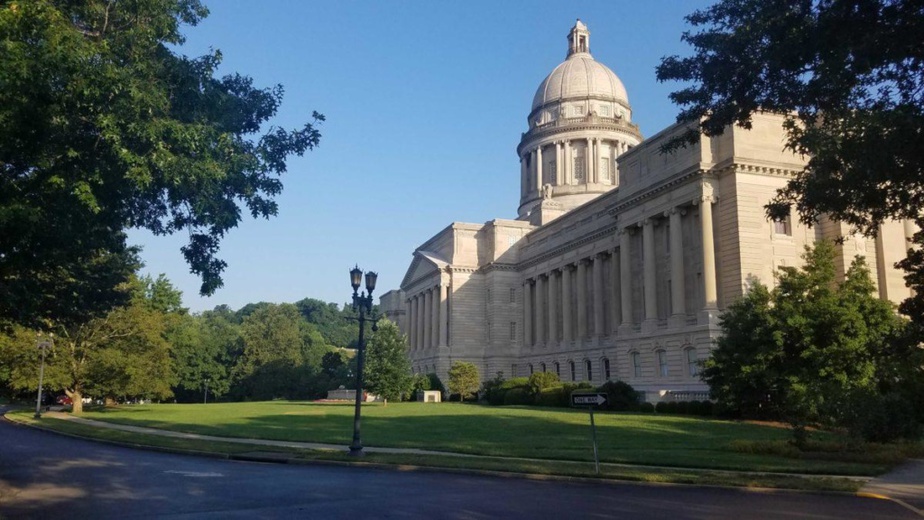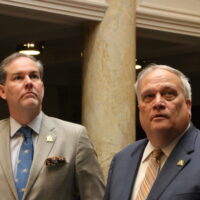Gov. Matt Bevin’s pension bill narrowly passed the Kentucky House of Representatives after hours of debate Monday. It now heads to the state Senate, where it is expected to have more support.
Lawmakers are in the middle of a special legislative session to deal with a massive spike in pension costs for regional universities and small state agencies like health departments, rape crisis centers and domestic violence shelters.
Republican leaders of the legislature are only considering one proposal — a bill crafted by Bevin that would allow the agencies to “buy out” of the state’s ailing pension system and incentivize them to move employees into less-generous 401k-style retirement plans.

About 7,000 employees could be affected by the legislation.
After the bill passed, Democratic Minority Leader Rocky Adkins said that the measure was part of Bevin’s agenda to “privatize public pensions.”
“I think he’s proven that over the last two-and-a-half years and I think he’s done everything he can to try to bring that crisis all across the commonwealth of Kentucky,” Adkins said.
The bill passed the House 52-46, but Democrats argue that the measure needed 60 votes to pass.
The state constitution requires a three-fifths majority to pass bills that spend or raise money when the legislature meets in odd-numbered years. Republicans say that the rule doesn’t apply during special legislative sessions.
Democrats also argue that the proposal would violate employees’ contract rights because it would move employees out of the pension system without their permission.
Republican House Speaker David Osborne said the bill is legal because it only affects benefits going forward.
“This does not retroactively take benefits away from anyone. Those benefits have been earned and they will be preserved for the person that has earned them,” Osborne said.
Bevin officially summoned lawmakers to Frankfort last Thursday with a proclamation that set the agenda of the special legislative session.
The proclamation included a 12-point list that would have to be included in whatever bill lawmakers passed, including a “non-severability” clause that would nullify the entire bill if a court ruled against one part of it.
Democratic Attorney General Andy Beshear said over the weekend that he would sue over the tightly-worded proclamation unless Bevin amended it.
The amount that regional universities and the “quasi” agencies have to pay into the pension systems increased from 49 percent of employee payroll to 84 percent on July 1.
The spike is happening because in 2017, the board that manages the pensions of most state workers, adopted more pessimistic assumptions for investments and payroll growth. As a result, government employers have to kick in more money to keep the system going.
Rep. Angie Hatton, a Democrat from Whitesburg, said during the debate on the House floor that the assumption changes “created a hostage crisis.”
“I believe it was done intentionally in order to cause the people who work there and those who lead those agencies to beg for relief. Even if it meant destroying the retirement system that they were promised,” Hatton said.
Speaker Osborne said that Democrats were “fear-mongering.”
“Any assertion that this is a sign of something else to come or symbolizes something else is probably irresponsible pandering,” Osborne said.
All Democrats voted against the proposal and were joined by nine Republicans.
Rep. Travis Brenda, a Republican from Cartersville, was one of the Republicans who voted against the bill. He said health departments in his district urged him to vote against it.
“This bill did not provide options for them that are affordable, long-term and sustainable. I think there was a happy medium somewhere between [Republican and Democratic proposals]. And we had an opportunity to get there, but we didn’t,” Brenda said.
The bill will now be considered by the state Senate. Republican leaders say the bill could pass out of the legislature on Wednesday.






